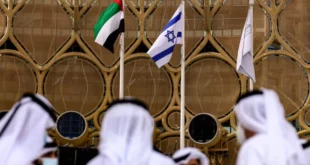MOGADISHU (AFP) — Powerful Somali warlord Hussein Mohammed Aidid said Monday he hoped to mediate an end to a bitter dispute in the lawless nation’s transitional government that has sparked fears of deepening anarchy.
Aidid, the deputy prime minister in the government, travelled to Mogadishu on Sunday after a four-year absence from the city and held talks with influential parliament speaker Sharif Hassan Sheikh Aden, he said.
“I met the speaker … at night and told him my desire to mediate between members of Somali federal institutions that are in Mogadishu and those in the town of Jowhar,†Aidid told AFP.
Aden, along with some government members, lamakers and the powerful warlords who control Mogadishu, vehemently oppose plans by transitional President Abdullahi Yusuf Ahmed and Prime Minister Ali Mohammed Gedi to set up shop in Jowhar. “The speaker listened to what I told him and (said) he would meet his political allies before giving me a reply,†Aidid said.
Aidid, whose father Mohammed Farah Aidid was largely blamed for the chaos that followed the 1991 ouster of dictator Mohammed Siad Barre, said he would try to bring members of parliament and the government together in a bid to hammer a truce. “The whole idea is to bring members of the parliament and those of council of ministers together in order to break the deadlock.
“I honestly want to end the conflict which is wasting the time of Somali insitutions,†said Aidid, a US citizen and leader of the Somali National Alliance (SNA).
Aidid said he would meet other warlords from the dominant Hawiye clan in a bid to shuttle between both camps to breathe life into Yusuf’s faltering government. However, he said he had no plans to join Yusuf and Gedi in Jowhar, the provincial outpost 90 kilometres north of the capital where the pair and their allies have based themselves citing insecurity in Mogadishu.
Apart from Gedi, a relatively unknown quantity in unpredictable Somali politics, Aidid is the only Hawiye to hold a top rank in the government.
Previous efforts to end the Somali conflict have failed miserably amid the persistant inter-clan fighting that has ravaged the country since the 1991 ouster of Siad Barre thrust the nation into anarchy.
 Eurasia Press & News
Eurasia Press & News


